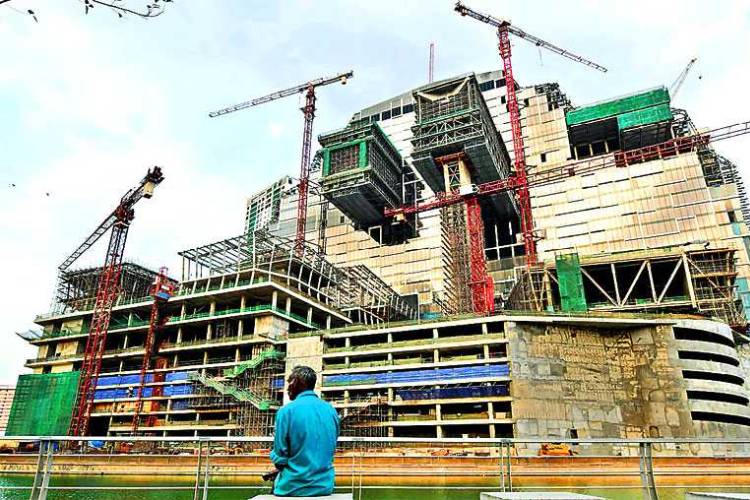The Government yesterday directed all State institutions, including Ministries, Provincial Councils, Local Government Authorities and statutory boards to allow local companies to exclusively bid for Government construction contracts.
The Finance Ministry, issuing a circular, said the projects should be worth between Rs. 150 million to Rs. 600 million.
The Ministry added that for contracts with an estimated cost of more than Rs. 150 million and up to Rs. 300 million, bids will now be called exclusively from local companies. This would include consultants and construction contractors that have a Construction Industry Development Authority (CIDA) grading of C2 or C3 and based on the corresponding estimated contract limits as recognised by CIDA.
Furthermore, for contracts worth Rs. 300 million to Rs. 600 million bids will be exclusively called from local companies with CIDA grading of C1 or C2 or both.
“Considering the role of the State-Owned Enterprises (SOE) in these industries, when such SOEs submit a bid for a contract on competitive basis then such SOEs will be given a 5% preference over all other contractors. This will be considered only at the financial evaluation and not at the Technical Evaluation,” the circular added.
To ensure that the bids made are realistic, the circular said that if the bid value is 11% to 19% less than the engineer's estimate the performance bond should be increased by 5%, and that if the bid value is 20% to 29% less than the engineer's estimate the performance bond should be increased by 10%.
If the bid value lower than the engineer’s estimate by 30% or higher, the bid will be rejected.
Imports of building materials declined $ 460.8 million during the period from January to November 2020, according to the latest external performance report released by the Central Bank. This decline was higher than the $ 449.3 million decline for machinery and $ 449.3 million recorded after the ban on personal vehicle imports last year. The biggest contributor to the trade deficit decline was the reduction of fuel prices, which saved Sri Lanka $ 1.2 billion.
“Imports of investment goods declined by 18.1% in November 2020 compared to November 2019, with reductions in all three of its main categories, namely, machinery and equipment, building material and transport equipment, and many subcategories within them recording declines, which was partly due to import restrictions,” the Central Bank said.
“Large value reductions were apparent in articles of iron and steel, medical and laboratory equipment, commercial purpose vehicles, cement, ceramic products, machinery and equipment parts, and uncategorised industrial machinery and transport equipment.”
Ratings agency ICRA Lanka, which is a subsidiary of Moody’s Investor Services, in a report on the construction industry said the sector is expected to demonstrate resilience compared with other economic categories.
“We base our assessment on four key reasons: the construction projects are expected to gradually pickup pace and broadly stay within the original timelines; Current domestic raw material production level and inventories are expected to sustain ongoing projects; Construction companies are largely insulated from the adverse effect of raw material price volatility due to currency depreciation; and availability of funding support,” the report released last year said.
The Government has also expressed its support to the sector on numerous occasions and pledged to kick-start delayed or stalled projects to support local companies. The first such delayed apartment project titled “Destiny,” which was started in 2012 with an estimated $ 100 million investment was restarted by the Urban Development and Housing Ministry last week. The Government has also outlined plans to push forward over 400 foreign-funded projects to provide additional support to the construction industry.
(FT)

